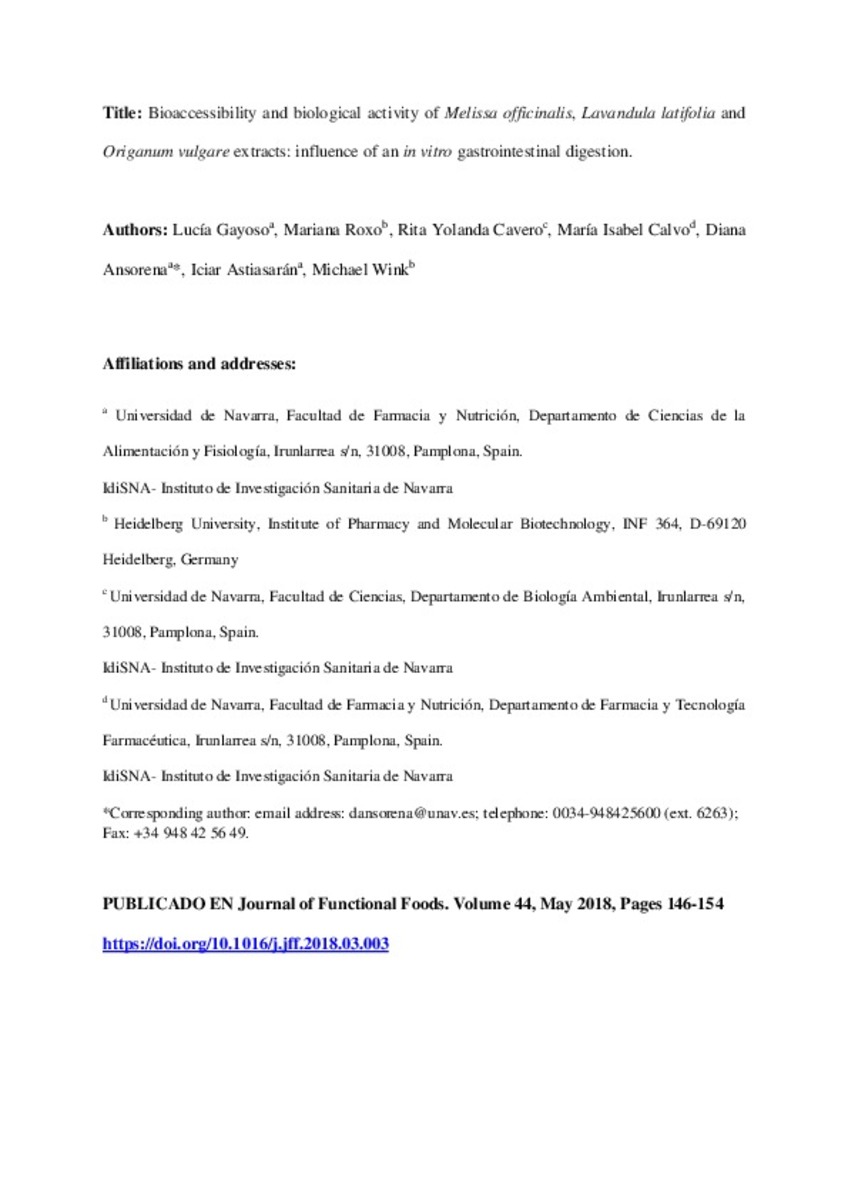Bioaccessibility and biological activity of Melissa officinalis, Lavandula latifolia and Origanum vulgare extracts: influence of an in vitro gastrointestinal digestion
Palabras clave :
Polyphenols
Caenorhabditis elegans
Antioxidants
Lemon balm
Oregano
Lavender
Plant extract
Fecha de publicación :
2018
Cita:
Gayoso, L. (Lucía); Roxo, M. (Mariana); Cavero, R.Y. (Rita Yolanda); et al. "Bioaccessibility and biological activity of Melissa officinalis, Lavandula latifolia and Origanum vulgare extracts: influence of an in vitro gastrointestinal digestion". . 44, 2018, 146 - 154
Aparece en las colecciones:
Estadísticas e impacto
0 citas en

0 citas en

Los ítems de Dadun están protegidos por copyright, con todos los derechos reservados, a menos que se indique lo contrario.











